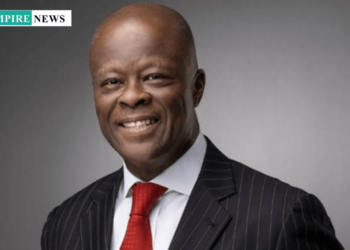The Nigerian Army is addressing a notable manpower shortage due to a wave of voluntary resignations among soldiers over recent years. The Mechanical Engineering Corps, in particular, has been significantly impacted, with hundreds of personnel leaving the force from 2020 to 2024. A recent memo signed by Lt Col A. Muhammed highlighted the urgency of re-engaging discharged soldiers to fill critical technical roles, as equipment support in the field requires skilled technicians. Commanding officers have been directed to contact skilled former soldiers in their areas willing to rejoin on a contract basis.
The strategy has drawn mixed reactions. Brigadier General Bashir Adewinbi (retired) praised the idea, noting that re-engaging retired military personnel aligns with global practices where ex-servicemen contribute to national security efforts. Adewinbi suggested that attrition might be linked to recruiting individuals who view the military as merely a job rather than a vocation centred on service. He emphasized that military life offers substantial benefits and opportunities for education and personal development.
In contrast, Brigadier General Peter Aro (retired) attributed the resignations to underlying systemic issues. He explained that many soldiers are leaving to secure more stable futures, given concerns over inadequate post-service welfare and inconsistent retirement policies. He noted that soldiers often face a lack of civilian preparation, forcing some to retire early to establish themselves before facing uncertain futures. Aro argued that the neglect of veterans’ welfare undermines military morale, warning that continued neglect could result in a future shortage of defenders for the nation.
Security experts like Afolabi Solanke and Chidi Omeje also supported the initiative but advised on careful coordination to ensure genuine strategic enhancement rather than simply creating employment. They emphasized the readiness and expertise that veterans bring, especially given their extensive training and experience in weapon handling.
This manpower gap, compounded by retention challenges, has spurred a call for institutional reforms in soldier welfare and career longevity, underscoring the need for a robust support system to retain military personnel who are crucial to national security.
Nigerian Army Re-enlists Retired Soldiers Amid Worsening Manpower Shortage
Roland Bayode
Roland Bayode is a Nigerian journalist with expertise in investigative reporting and editorial leadership. A graduate of Mass Communication, he served as Editor-in-Chief of Echo Media at Adekunle Ajasin University and was the top intern at Premium Times Center for Investigative Journalism (PTCIJ) at Owena Press, The Hope Newspaper in Akure. Roland has contributed to News Round the Clock, PTCIJ Google-YIAGA LightRay Media, Apex Sport (U.S.), and served as Associate Editor for Nigeria Grassroot News under AFYMP.
Leave a Reply Cancel reply
NATIONS NEWS
POLITICS
YOUR ECONOMY
E & P
Messi to Join Manchester City on Loan? Guardiola Eyes Reunion
In a surprising turn of events, reports suggest Lionel Messi could join Manchester City on a six-month loan deal, reuniting...
YOUR THOUGHT & HISTORY
Who we are

Welcome to Umpire News, your go-to online newspaper dedicated to broadening perspectives and expanding the horizons of our numerous readers. Read more
Recent News
Speed Darlington Released on Bail After Month-Long Detention
Biden Commutes 37 Out of 40 Federal Death Sentences
© 2024 Copyright Umpirenews. All rights reserved






































